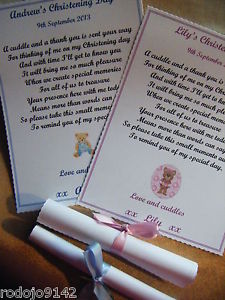


Well, you’ll probably need this one at some point, won’t you? This is especially useful when you make a request. Vielen Dank im Voraus! – Thank you in advance! Use it with confidence the same way you would use it in English. This is the best “thanks” you can use when you want to thank someone that has helped you a lot in a formal context.


Ich danke dir! – I thank you!Īlthough it does not seems so, Ich danke dir! is rather informal, but more elegant than just Danke. Like we said in the beginning, this is one of the most formal ways of thanking someone in German. “Gleichfalls” is what you should add to your “Danke!” when someone wishes you “Guten Appetit!” (“Good appetite” or “Enjoy your meal”) or something similar. Danke, gleichfalls! - Thank you, the same to you! Rarely used, but still useful if you want the complete list of ways to say thank you in German. Depending on whom you are talking to, use “dir” and “euch” for friends and colleagues or “Ihnen” for those who you don’t know too well. It’s a heartfelt way of thanking someone that has done something kind for you. Well, “Sehr aufmerksa” is for one of those situations. We all have moments in our lives when we need to thank the extraordinary people that helped when we were in trouble. Vergelt’s Gottis a regional expression used mainly in the southern region of Germany. Vergelt’s Gott! – God will reward you!Īs I said, there are multiple and different ways to say thank you in German. While “Danke” means “thanks”, “vielmals” translates to “very much.” 7. This is a variation of Vielen Dank! and it can also translate to “thanks very much!”. Tausend Dank! is the German equivalent of our “Thanks a million!” and it is generally used in informal situations like talking to friends or relatives. Vielen Dank! - Many thanks!ĭo you know that moment when you are really grateful to someone because they helped you a lot? Well, that’s the perfect moment to thank them in German using “Vielen Dank!”. It’s very important to take into consideration your way to talk to other people and your personality. This is a more formal variation of Danke schön, but both expressions can be used interchangeably. Although it is often used in the business environment, Danke schön! seems suitable for all kinds of formal and informal situations. Moving on and adding a little more formality to our “Danke!”, we discover Danke schön! which is just as short and sweet, but maybe a little bit more formal. However, if you feel like more formal parlance is required, you can use the expression “Ich danke Ihnen!”. It’s sweet, short, easy to remember, and suitable for both formal and informal contexts. If you already interacted with the German language, you probably heard “Danke!” before. Danke! - The universal “Thank you” in Germanĭanke translates to “thank you” or “thanks” and it is probably the best and certainly most common way to say thank you in German. Let’s discover the absolute best ways to say thank you in German. Naturally, the German language makes no exception. “Thanks”, “thank you”, “thanks a bunch” or even “I’m eternally grateful to you” are just a few of them. In English, we have multiple variations for expressing gratitude. You start with the basics – like thank you and you’re welcome – and you continue with more advanced vocabulary like variations of the same expressions you already mastered. We all remember that! Learning German – or any other language – is just slightly different from learning to speak. Saying “thank you” to someone is one of the first things we learned when we were little – “say thank you for the chocolate to the kind gentleman!”. Expressing gratitude in a foreign language is more than just a matter of being polite it’s a sign of respect towards the culture and the country you are visiting. More precisely, how do you say thank you in German depending on the social context, degree of familiarity, or the subject of discussion? We all know that just a simple “thank you” in German (Danke!) can work wonders when the context asks for it. Today we are discussing German etiquette.


 0 kommentar(er)
0 kommentar(er)
